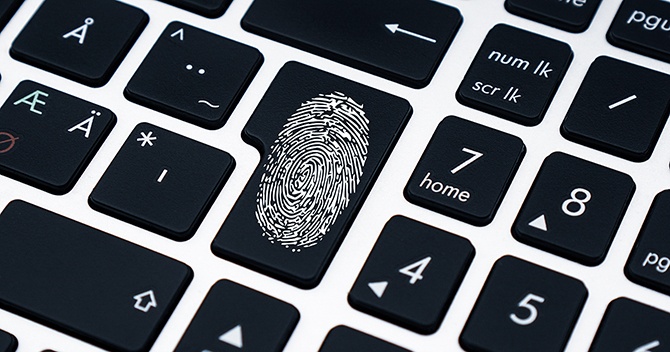Advantages of a Personal Background Check

Doing a self-background check online, however, gives access to a report of the public information others can see. Of course, you don't need a background check to find out what you already know about yourself. However, getting a comprehensive report allows you to see how your information appears in public records that are viewable by property managers, landlords, employers, and also practically anyone else who has identifying details about you and using a service like Checkpeople.com. Some advantages of running a personal background check include these:
- Discovering any inaccuracies and errors in your merged legal and financial records gives you the opportunity to correct them.
- Having a report endows you with a document of your history which you could share — along with any supporting information you choose.
- Preparing for questions that could arise during housing screening or when pursuing employment.
- Significantly saving more money than if you were to get reports individually.
What Different Background Checks are There?
While there are several types of background checks a person, business or organization can run, the four most common ones are these:
Credit Background Checks
Credit Background Checks, also known as a credit report, is a record of an individual's history managing credit, paying bills, and his or her credit-to-debt ratio. These checks are standard requirements for loan, car, or credit card applications. Landlords could also perform a credit check to determine if prospective tenants have good credit and to gauge the likelihood of receiving on-time rent payments from them. Employers also use the details of credit history to get a feel for the applicant's willingness to commit embezzlement or fraud, his or her financial responsibility, and character. A general debate, particularly with landlords and employers conducting credit checks as a basis for acceptance, is that even if a person has bad credit, it is usually caused by circumstance and by no means gives a reliable forecast as to a person's willingness to pay rent, his or her temperament, or possibly committing a crime.
E-Verify Background Checks
E-Verify Background Checks is an online check which uses information from a new hire's I-9 form and government records to validate the person's authorization to work in the United States. Unlike Form I-9, the E-Verify check is not mandatory.
Criminal Background Checks
Criminal Background Checks are often necessary when details about significant criminal activity, such as fraud, sex, white collar, or violent crimes before a firearm purchase, adoption, employment, among others. They search sex offender registries, terrorism watch lists, national criminal databases, county criminal courts, and state and federal records. Nearly 83 percent of employers conduct criminal checks to show if a candidate could make for an unsafe work environment or potentially threaten their customers.
Employment Background Checks
Employment Background Checks are run by employers to prevent hiring a workplace threat or possible liability. In the U.S., 72 percent of employers run this check for everyone they employ. The search traces back seven years of records and information, and some states go back as far as 10 years. Employers must have consent before running these checks, which can include but is not limited to, driving and criminal records, medical, work, and credit history, social media usage, education, and drug screening. Although employers can decide whether to hire an individual based on findings from an employment background check, it's illegal to use the candidate's age, race, genetic information, national origin, disability, religion, or sex against them.
Some other background checks include the universal, professional license, and fingerprint background checks. The Universal search determines if a person is eligible to buy a firearm based on information from the NICS or National Instant Background Check System. The ATF or Bureau of Alcohol, Tobacco, Firearms, and Explosives regulates this check, but NICS background checks belong to the FBI. Professional license background checks are required for teachers, school administrators, home contractors, and financial services, like real estate and insurance to verify if a person has a valid license in a specific industry. Fingerprint background checks also referred to as Identity History Summary, can be run with any other background checks. Primarily, it is part of pre-e, employment screening processes and is mandatory for fire departments, public schools, law enforcement agencies, hospitals, and other government-run institutions.
Some background checks, like the one for employment, requires employers to comply with specific regulations from the FCRA or Fair Credit Reporting Act to ensure fairness. After the background check, if a candidate gets denied employment based on the results, the employer has legal obligations to do the following:
- Inform the candidate in writing of the final decision.
- Give them a copy of the report to the applicant
- Provide the candidate with the information about the reporting company
- Let the applicant know that while the background check company prepared the record of results, they had no say in the hiring decision
- Inform the candidate they can ask for any additional copies of the report
- Advise the applicant they can dispute any inaccuracies by contacting the reporting company
Checkpeople.com is not a consumer reporting agency. So, it isn't FCRA compliant. Therefore, the use of this service by individuals for tenant or employment screening, stalking, identity theft, or spying is prohibited.
How To Do a Self-Background Check
Running a personal background check is as easy as a search for a pizzeria that delivers nearby. If you want to see exactly what employers see and check and see if your name appears in any sex offender, traffic, or criminal databases or see your previous employers and residential addresses, follow these easy steps:
- directly enter a name into the search box.
- Wait while the system combs through over 6 billion public records.
- Then, view your results and a full report.
That's all there is to it to easily unearth public information. Don't waste your time with some of those free background check platforms, that usually can't find every account out there. Your search on CheckPeople.com gives you immediate access to a comprehensive background report that features:
- Criminal Records
- Arrest records
- Previous and current contact information
- Documents from municipal, federal, state, and county courthouses
- Personal details, such as occupation, associates, relatives, nicknames, and birth date, among other information
- Deep web search, which includes posted videos and pictures, social media, forum posts, and other details obtained using a propriety algorithm specifically for the dark web.
Other Reasons for a Background Check

Perhaps you've just started dating someone, or a person one of your friends like makes you nervous, or you moved your family into a neighborhood and you a little more information about your new neighbors, you can give yourself peace of mind by running a background check.
Checkpeople.com can reveal felony records, speeding tickets, sexual offenses and other reports with an extensive search into national and local files. You can search for people your children come into contact with like teachers and coaches. Background searches can also help you discover phone and address information for an old high school sweetheart or lost loved ones. You can even search property you're interested in renting or buying by checking for liens or judgments on the owner.
Whether it's someone, your child is dating or your boss, you deserve to know who you're working with, who hangs around your family and friends, and if people you meet are genuinely the person they claim or present themselves to be by doing a background check. There's tons of information contained in public records, and it's available to the public so people can be informed and make knowledgeable decisions.
Doing a personal background check is an all right way of self-evaluation. You get an opportunity to see if you should make corrections of details and gives you leverage to secure a residence or job by understanding what information about you others see. The more you know, the more likely you can make better choices.



 Advantages of a Personal Background Check
Advantages of a Personal Background Check 


